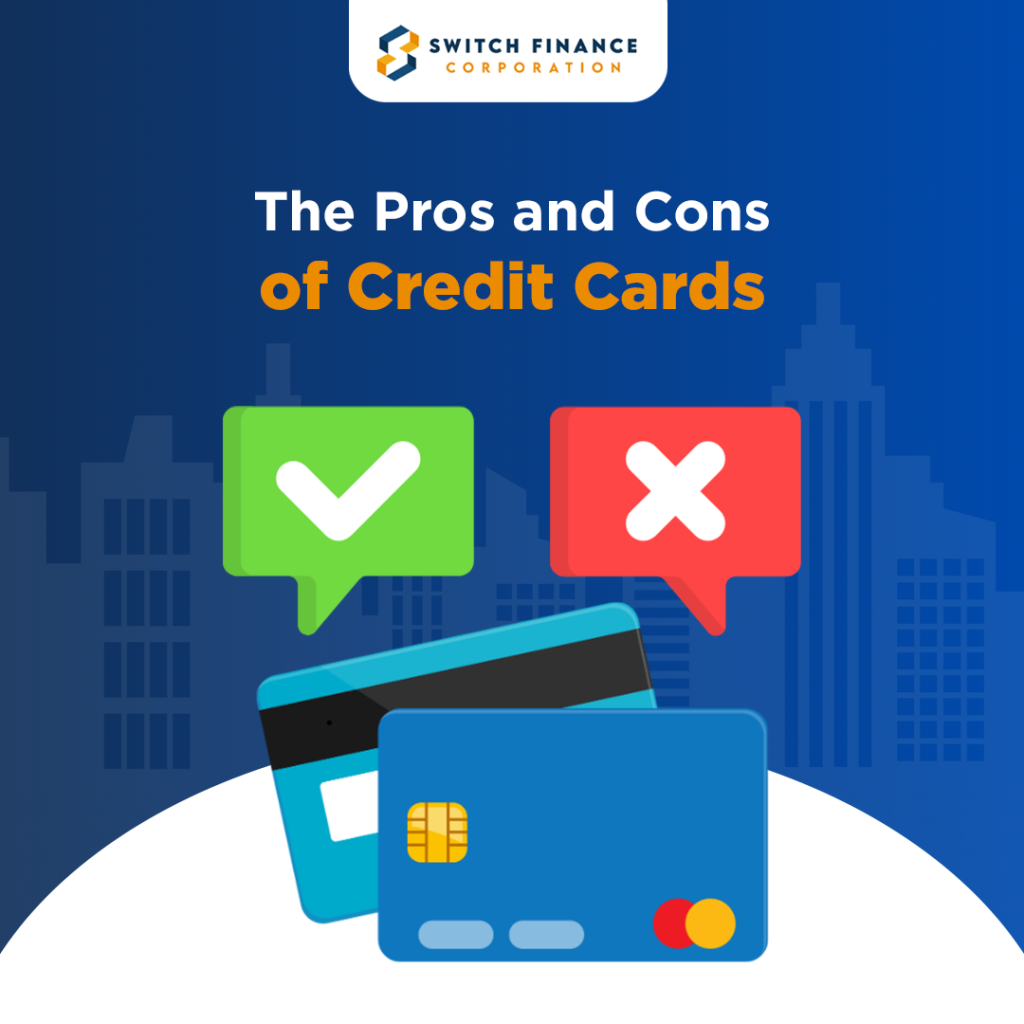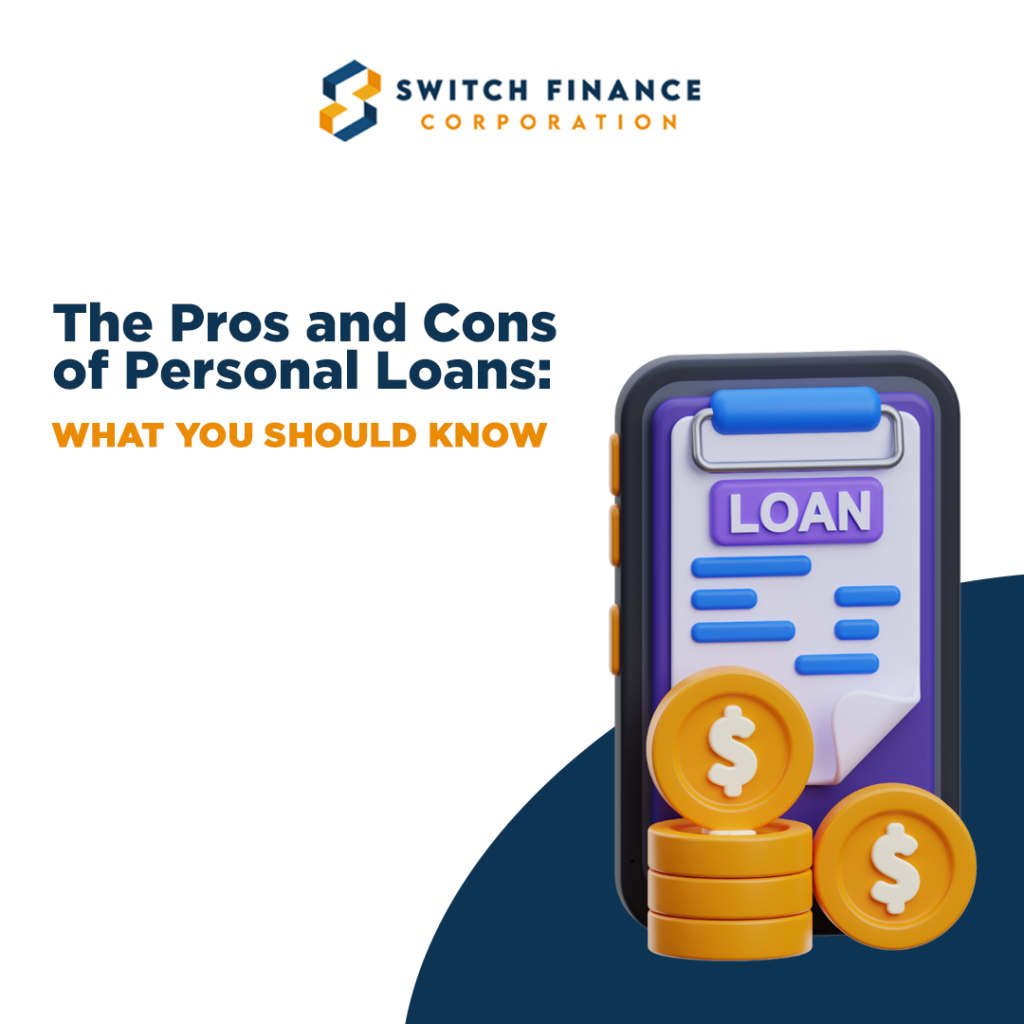
Credit cards have become an essential financial tool in today’s society. They offer convenience, security, and rewards, but they also come with potential risks and responsibilities. In this blog post, we will explore the pros and cons of credit cards, helping you make an informed decision about whether they align with your financial needs and goals.
Advantages of Using Credit Card
Convenience and Ease of Use
Credit cards have a big advantage: they’re handy. You can buy stuff without cash and use it to shop online, travel, and pay for everyday things.
Lots of places take credit cards, so you can use them almost anywhere.
Building Credit History
When you use a credit card well, it can help you create a good credit history.
This matters when you want to get loans, mortgages, or good interest rates. If you pay on time and keep your balance low, your credit score will get better as time goes on.
Rewards and Benefits
Many credit cards have reward programs that give you cashback, points, or miles for every dollar you spend.
You can use these rewards for travel, merchandise, or statement credits.
Also, some credit cards offer perks like travel insurance, purchase protection, and extended warranties.
Financial Flexibility
Credit cards give you a line of credit to use in emergencies or for big purchases.
This financial flexibility can save you when surprise expenses pop up.
What’s more many credit cards don’t charge interest if you pay your balance in full each month helping you manage your cash flow well.
Disadvantages of Using Credit Cards
High-Interest Rates
A major downside of credit cards involves their steep interest rates on outstanding balances. When you don’t pay off your balance each month, interest charges pile up fast making it tough to clear your debt.
This can trap you in a hard-to-escape debt cycle.
The urge to spend too much
Credit cards can make overspending too easy since they let you access money you might not have right away.
This can result in spur-of-the-moment buys and money troubles if you’re not careful.
To stay out of debt, it’s key to set and stick to a budget.
Charges and fines
Credit cards often have an array of fees and penalties.
These include yearly charges fees for late payments, and penalties for going over your limit. These costs can pile up and chip away at the perks of using a credit card.
You should read your credit card agreement’s fine print and know about any possible fees.
How It Affects Your Credit Score
Using credit cards can boost your credit score, but careless use can hurt it.
If you skip payments max out your card, or try to get too many credit cards, your credit score can take a hit.
This can make getting credit harder down the road and might lead to higher interest rates.
Ways to Use Credit Cards
Pay Off Your Balance
To steer clear of hefty interest charges, try to clear your credit card balance each month. This strategy helps you stay out of debt and keeps your credit history in good shape.
If paying the whole balance isn’t possible at least cover the minimum amount to dodge late fees.
Keep an Eye on Your Spending
Stay on top of your credit card expenses to make sure you don’t go over your budget.
Many credit card companies offer tools and apps that let you watch your transactions and set spending caps.
Going through your statements often can help you catch any unauthorized charges and prevent overspending.
Get to Know Your Card’s Conditions
Be sure you grasp the terms and conditions of your credit card, including interest rates, fees, and rewards programs.
Understanding these specifics can help you get the most out of your credit card and steer clear of surprise charges.
Use Rewards
If your credit card has rewards, use them.
Cash in points or cashback for things or services you need or value. Don’t spend too much just to earn rewards, as this can put you in debt.
In Summary
Credit cards have lots of perks.
They’re handy, give you rewards, and help you build credit.
But watch out – they’ve got some downsides too.
Think high interest rates, fees, and the urge to spend more than you should.
To get the most out of your credit card, you need to know its good and bad points and use it. Just keep an eye on what you’re spending, pay off your balance, and make sure you understand what your card offers.
This way, you’ll enjoy the benefits while steering clear of the risks.



